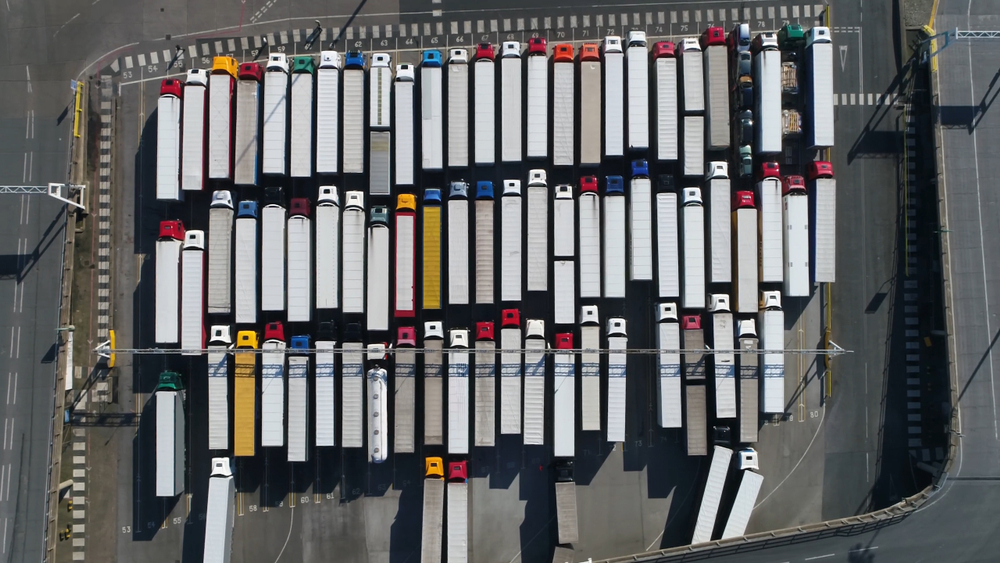If you’re an owner/operator, keeping your truck on the road is always a top priority. You’re a business owner, after all – you need to find enough work to always go from one job to the next. The more you work, the more you earn.
Yet at the same time, this is often a lot easier said than done. Thankfully, load boards exist that are designed to make owners/operators not only more efficient but more profitable as well.
What Are Load Boards?
A load board is a type of online platform that connects shippers, brokers, and carriers together. Each of these parties has its own unique needs, but sometimes figuring out how best to meet them can be a challenge. Load boards try to make that easier by allowing carriers to find loads, discuss the best rates, and keep their trucks moving – no matter what.
Think of it a bit like a message board that is dedicated exclusively to helping people ship goods and find carriers that best meet their unique needs.
How Does a Load Board Work?
Ultimately, using a load board is relatively straightforward for everyone involved. A shipper or broker will list any loads they have available, providing as many details as possible. These details include pickup and delivery locations, the type of load, the overall weight, and any special requirements they might have.
Owners/operators can then search for loads that meet their own needs. Not everyone will be available to travel to all destinations, for example. At that point, the parties can contact one another and bidding and/or negotiation can get started. Once that process is complete, booking and confirmation occur, at which point the owner/operator can begin work.
How Do Owner Operators Use Load Boards?
The number one way that owners/operators use load boards is to find loads. An owner/operator is someone who runs their own trucking business. Any day when they don’t have a load is a day they’re not working. Based on the specific routes they like to travel along with their capacity and other preferences, they can use load boards to find suitable jobs to take.
Owners/operators also use load boards in several other ways. Many use them to manage their availability, for example. Load boards are also valuable in terms of optimizing routes.
In addition, the importance of load boards in building relationships is something that cannot be overstated. The type of connections that you make on load boards can easily turn into recurring work and long-lasting relationships if all parties are satisfied with the job that has been done.
Factors to Consider When Choosing a Load Board

It is key to understand that not all load boards are created equally. Some load boards are inherently more valuable than others, so when it comes to finding one that meets your needs, there are many factors to keep in mind.
Types of Loads Available
Naturally, the types of loads that are available will be a big thing to look at when choosing a load board. If you’re an owner/operator who prefers FTL (full truckload) jobs, you wouldn’t want to spend much time on a load board that only offers LTL (less than truckload) opportunities. If most of the jobs on a particular board require specialty handling that you can’t match, it reduces the potential that the board has to offer. Be sure to find the load board that fits your hauling needs.
User-Friendliness
You’ll want to make sure that your load board has an intuitive user interface. This will save you time in the long run. If you have to spend hours trying to figure out how to navigate a load board just to find a job, you’re only causing yourself a lot of stress and frustration you could avoid.
Real-Time Status
A load board worth your attention should offer real-time updates on availability, status, and trucking. This is all useful in terms of effective logistics management.
Transparent Load Details & Payment Terms
When viewing loads on a load board, you should never be left guessing about key aspects of a load like payment terms. The more transparency you have, the less likely there is to be a misunderstanding later on.
Customer Service
In the unfortunate event that an issue does arise, you want to know that the load board’s customer service capabilities will be able to step in and lend a hand. At the very least, you shouldn’t have to wait days for responses to simple questions. You should always have a way to get clear details on rates, payment methods, additional fees, and more.
How Load Boards Impact Freight Factoring for Owner-Operators
Load boards impact freight factoring for owners/operators primarily by streamlining processes. Invoicing and payment processing become far easier, meaning that workers can get paid quickly, and the administrative burden is reduced for all involved. This is a great way to improve cash flow for all parties.
Load boards also help make owners/operators who may be new to the world of logistics aware of how certain fees are structured. If nothing else, it can act as an invaluable lesson about how to break down your own costs when using load boards to find and book work for the future.
In the end, load boards give owners/operators the information they need to make the most informed decisions possible. At that point, they can optimize their business and become the most successful entrepreneurs that they can be.
Factoring is Simple with Advanced Commercial Capital. Call Us Today!
At Advanced Commercial Capital, we pride ourselves on our ability to protect you – and your business – from unpaid freight invoices. It doesn’t matter whether they’re the result of fraud, bankruptcy, delinquency, or something else entirely – we offer a non-recourse approach so that we own all the risk, not you.
Getting started is easy – all you need to do is fill out the form on our website to learn more about our freight factoring solutions. After you apply and get approved, we will begin the lightning-fast setup process – which involves giving you access to our online tools.
Once you’re funded, you can rest easy knowing that all your needs are taken care of – allowing you to get back on the road and focus on the task at hand, exactly as it should be.
If you’re interested in finding out more about load boards and freight factoring, or if you have any additional questions that you’re eager to talk to someone about in a bit more detail, please don’t hesitate to contact the team at Advanced Commercial Capital today.



